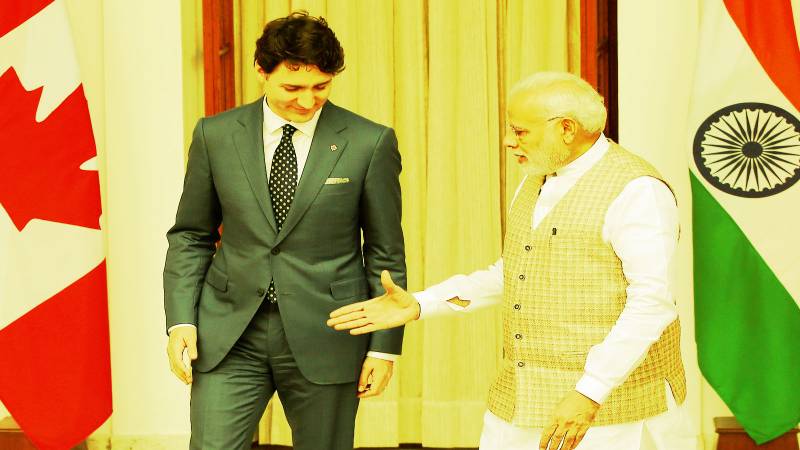
In a possible de-escalation of the continuing conflict brought on by the killing of Sikh pro-Khalistan activist Hardeep Singh Nijjar on Canadian land, India agreed on Wednesday to restart visa services for Canadian nationals.
When Canadian Prime Minister Justin Trudeau openly connected Indian intelligence to Nijjar's murder—a claim India called "absurd"—tensions erupted. A proponent of an independent Sikh state, Nijjar, was accused of terrorism and murderous plots by Indian authorities.
An Indian diplomat was expelled after Canada asked India to assist with the probe. In retaliation, India stopped issuing Canadian visas.
The Indian High Commission in Ottawa decided to bring back visa services for Canadians after taking into account recent events and doing "a considered review of the security situation."
The goal of these actions is to diffuse the escalating diplomatic crisis that arose from Trudeau's allegations. Amidst the circumstances, Canada responded by withdrawing 41 ambassadors from India, further exacerbating diplomatic tensions.
Only 21 of Canada's diplomats and their families remained unscathed when New Delhi, on the verge of a diplomatic standoff, pondered lifting diplomatic protection for the rest of them.
Ottawa replied by pulling out the last of its diplomats. Both sides had responded forcefully as the diplomatic spat between their nations had grown considerably worse.
Notably, due to a rise in anti-Indian actions in Canada, the Indian government urged its people not to visit specific regions of the country. The severity of the diplomatic impasse and its possible effects on Indian citizens living in Canada are highlighted by this advice.
The murder of Hardeep Singh Nijjar, a Sikh liberation movement supporter who immigrated to Canada in 1997 and became a citizen in 2015, heightened long-standing tensions.
A sizable Sikh population of around 770,000 people, or two percent of the total population, resides in Canada. Within this group, there is a vociferous minority that supports the creation of Khalistan, an independent Sikh state.
The Sikh freedom movement has mostly faded within India; in the 1980s, security forces used lethal force to put an end to an insurgency in the state of Punjab. But the matter is still delicate, and the Nijjar case has raised new issues.
Hundreds of Sikh protestors burned flags and denounced Indian Prime Minister Narendra Modi as a result of the issue, which sparked rallies outside Indian diplomatic posts in Canada.
While the restoration of visa services is an important step in the direction of normalizing diplomatic ties between Canada and India, there are still underlying problems with the process.

